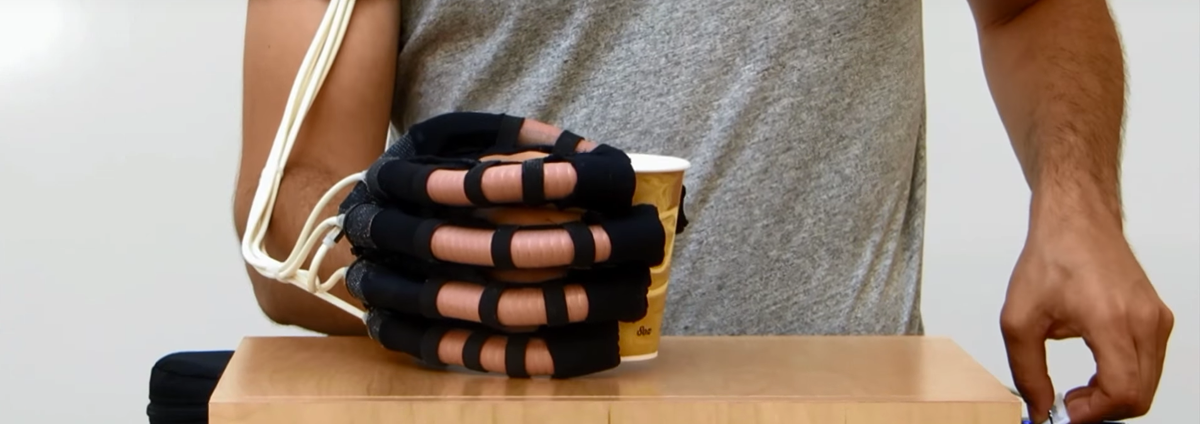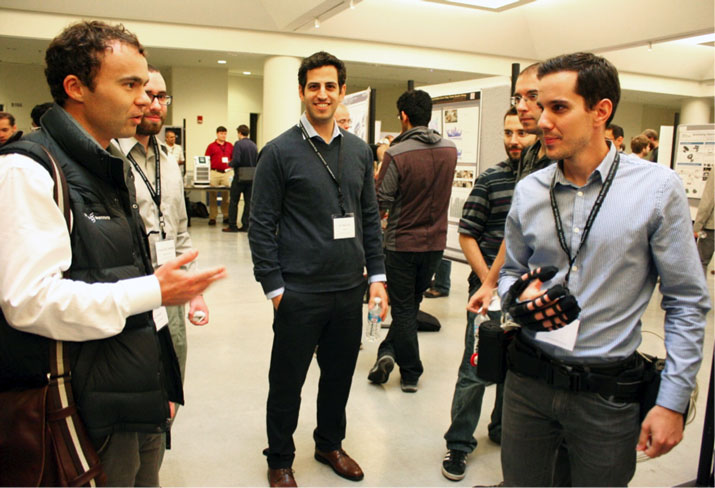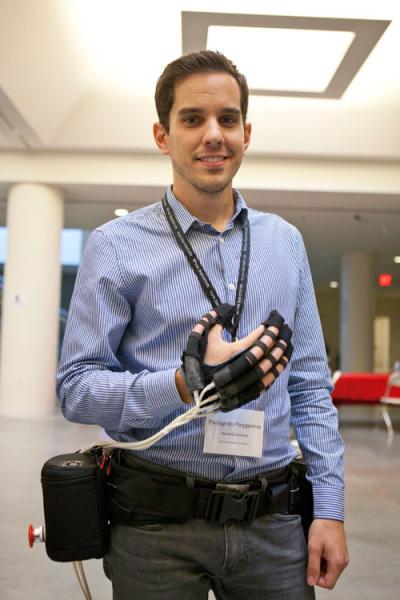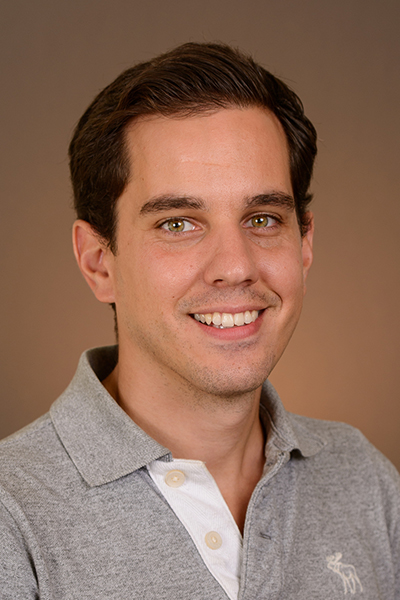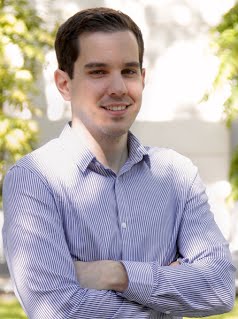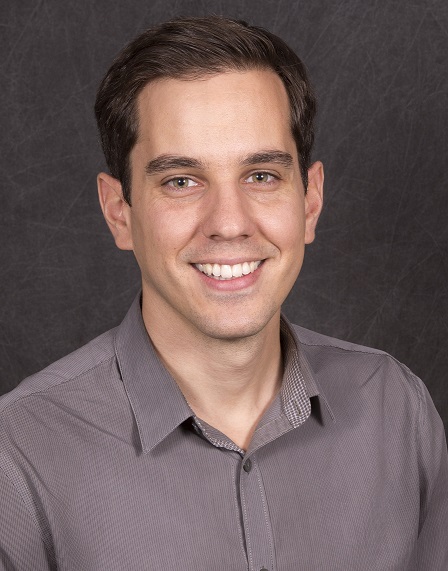Panagiotis Polygerinos is an Assistant Professor of Engineering with the Ira A. Fulton Schools of Engineering at Arizona State University. His research interests focus on the realization of tasks that are essential to the design, implementation and integration of novel, affordable, robotic systems and mechatronic devices that have significant potential to improve patient care and human activity.
A few years ago, Panagiotis was in the news as he led a Harvard-based team in developing a soft robotic glove that could help people who have lost the ability to grasp and pick up items and objects. The device could help the estimated 6.8 million people in the United States who have hand mobility issues, whether from a degenerative condition, stroke, or old age.
This robotic glove is softer and more lightweight than available assistive technology for the hands. The team’s purpose is to restore independence for people who have lost the ability to grasp. The project was led by Panagiotis Polygerinos, who at the time was a technology development fellow in Walsh’s lab. Asked if he can remember the best thing a patient has said when trying the glove, Polygerinos looks thoughtful, and then his face lights up. “Oh my God, I can pinch again!”.
More recently, Polygerinos was featured in the American Association for the Advancement of Science Medicine magazine for another advance. He is trying to create a minimally invasive system that can be used to repair small defects in internal organs, without the sutures and surgery such procedures typically require. As reported by Science Translational Medicine, the team of scientists, surgeons and engineers from different backgrounds has developed “a catheter system that deploys a reflective balloon and adhesive patch to seal hard-to-reach defects within the body, such as the heart septal wall.
Professor Polygerinos received a Bachelor’s degree in Mechanical Engineering from the Technological Educational Institute of Crete, Greece in 2006 (top of his class), a M.S. degree in Mechatronics (with distinction), and Ph.D. in Mechanical Engineering from King’s College London, London, U.K., in 2007 and 2011, respectively. In 2012, he joined as a postdoctoral fellow with the Harvard Biodesign Lab (Prof. C. J. Walsh) and the Wyss Institute for Biologically Inspired Engineering at Harvard University, where he worked on soft robotic systems and wearable devices for people with upper extremity disabilities. He continued his research as a Wyss Postdoctoral Fellow of Technology Development at the Wyss Institute and collaborated with researchers, engineers, industrial and functional apparel designers, clinicians, and business professionals to develop new wearable assistive and medical technologies.



